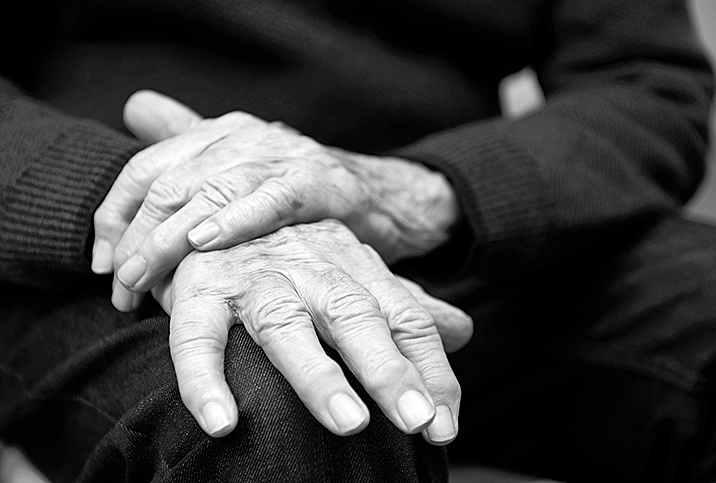Parkinson's Disease Is a Threat at Any Age

"Parkinson's disease (PD) is stereotypically an 'older' person's disease, with most diagnoses happening after age 60," according to Rebecca Gilbert, M.D., chief scientific officer for the American Parkinson's Disease Association. "At least 10 percent of people diagnosed with PD are under the age of 50." This is referred to as Early Onset or Young Onset Parkinson's Disease (YOPD).
Although Parkinson's is one of the most well-known conditions by name among the general public, few people know what it means to have the disease. Understanding the truth about the onset and diagnosis can help you learn how to manage life with this disease.
An overview of Parkinson's
The Parkinson's Foundation defines PD as "a neurodegenerative disorder that affects predominantly dopamine-producing (dopaminergic) neurons in a specific area of the brain called substantia nigra." The substantia nigra is the portion of the midbrain responsible for motor function. Differences in this section of the brain cause the most common traits of this disease.
A few of the most common effects of PD are tremors, difficulties with balance and motility, stiff limbs and bradykinesia, or slowed movement of the limbs and body. Parkinson's is a progressive, degenerative condition that can impact motor skills and daily activities, and though not fatal, it can result in severe complications.
Treatments continue to improve the quality of life for the diagnosed and slow its progression. However, appropriate treatment depends on an accurate diagnosis, which can be hindered by misconceptions held by both patient and doctor.
Overcoming myths
Without actually having this disease or knowing someone with it, someone may have preconceived ideas about what it might look like.
"Many believe that all people with Parkinson's are elderly," said Elizabeth Pollard, spokesperson for the World Parkinson Coalition. "Although most people with Parkinson's are over the age of 65, you can be diagnosed with Parkinson's at any age.
"Another misconception is that all people with Parkinson's have a tremor. One-third of people with Parkinson's don't," she added.
While tremors are an important consideration in diagnosis, there are many symptoms your doctor will look for. According to the Parkinson's Foundation, "You must have at least two of the top four symptoms—such as trouble balancing, stiff limbs, difficulty walking and slowed movement—for a neurologist to consider a diagnosis."
Progression to tremors can take time. Because of this, many patients will go years with Parkinson's without a diagnosis.
"Although Parkinson's disease is a movement disorder—meaning that it causes difficulty with a person's ability to move—there are many associated non-motor symptoms, such as sleep problems, constipation, depression, anxiety and more," Gilbert explained. "Some of the Parkinson's disease non-motor symptoms can be present years before motor symptoms."
Knowing the warning signs
In addition to the major signs of Parkinson's, there are other problems that can occur, which you might not immediately believe are symptoms of the disease. Some of these signs are so common you might think they simply describe you as a person, not a specific symptom.
The Parkinson's Foundation reminds us that no single one of these signs is cause for concern. However, if you do have one of these symptoms, you should consider a discussion with your doctor just in case. Besides tremors, here are some of the common signs of Parkinson's disease:
- Small handwriting: This could present as words that look crowded, changes in how you form the letters or even the way you write sentences on a page, with letters getting smaller as you write. This cluster of habits is called micrographia, and is caused by the same brain processes that cause PD's other movement symptoms.
- Loss of smell: This symptom is common with colds or even when seasonal allergies cause a stuffy nose, but if you experience this symptom without difficulty breathing, you should talk with your doctor. This is also a possible symptom of COVID-19.
- Trouble sleeping: We're not talking about insomnia, or the inability to get a good night's sleep. The disruption of sleep patterns in individuals with Parkinson's is caused by involuntary muscle movements that occur during sleep and can be so violent, they wake you or your partner.
- Trouble moving or walking: Stiffness happens, especially if you work out frequently or try something new, but if you feel you can't lift your legs or that your stiffness doesn't go away after a few minutes of movement, you may want to contact your doctor.
- Constipation: Constipation is caused by many conditions, so it's important to consider your diet, lifestyle and preexisting conditions, but this is indeed an indication of PD.
- A soft or low voice: A sudden change in volume, pitch or hoarseness, similar to having a cold or when you have strained your voice, can be a sign of Parkinson's. If there is no clear cause for the change in your voice, consider seeking medical advice.
- Masked face: Many medications can cause your face to take on a stern or distant expression. Similarly, those with PD can look angry or zoned out even when they feel the opposite.
- Dizziness or fainting: This is most noticeable when you stand up and immediately feel dizzy or faint. This can be caused by many different conditions, but if this happens frequently, you should talk to your doctor.
- Stooping or hunching over: A change in posture can be caused by an injury or arthritis, but if you or your family notice a sudden change in your posture, this could be a red flag that you should investigate.
Parkinson's isn't a death sentence
If you or someone you know has been diagnosed with Parkinson's, it's important you identify the many misconceptions about the disease so everyone can focus on real causes, symptoms and treatment.
"People with Parkinson's have dramatic 'on' and 'off' periods with their medication," Pollard said. "You may see someone at one time of day and they look totally fine and they can move normally. A few hours later, as the medication wears off, they will start to show symptoms—that is, slow stiff movement, poor balance or slurred speech."
As research to find the Parkinson's gene continues, doctors and scientists are learning more about the impacts of this disease and how to improve the lives of PD patients. With early detection and treatment from a specialist, you can live a long life with Parkinson's disease.


















